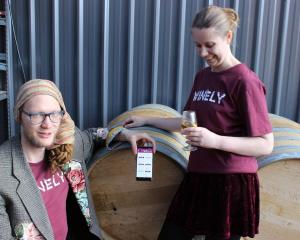Shareholders are asking the Fonterra board to re-evaluate its 43% stake in beleaguered Chinese dairy company Sanlu, but appear to support its handling of the contaminated milk issue.
Federated Farmers Dairy section chairman Lachlan McKenzie said the issue of milk contaminated with melamine was a China-wide problem, no longer confined to Fonterra and Sanlu, with 22 companies and 69 products now implicated.
"It's not just one company. It's the quality of raw milk coming into the [Sanlu] factory. The more I look at it, the more I congratulate Fonterra for the way they've acted.
"They are . . . the ones who opened the box and let people have a look," he said in an interview.
But others say the incident raises questions about what quality checks and balances Fonterra has in place, and some observers believe Fonterra's $200 million investment in Sanlu is now worthless.
"No-one is going to buy Sanlu products now," said one observer, who asked not to be named.
Mr McKenzie said China's business culture was vastly different from New Zealand's, a factor which, along with Sanlu's delays in addressing the milk poisoning issue, should be considered by the board as it re-evaluated its investment.
He was concerned at possible wider implications for New Zealand food production.
"As food producers, we are gutted that food coming from a part-New Zealand owned factory is harming people."
Three babies have died, 1300 are in hospital and 6244 sick.
Fonterra shareholder's council chairman Blue Reid declined to comment, saying the dairy giant's watchdog would consider its response at a meeting next week.
University of Otago School of Business head of marketing Prof Phil Harris said Fonterra had to quickly protect its brands and image as an ethical producer of high-quality food.
Fonterra also needed greater control over the supply chain to ensure quality.
Prof Harris said Fonterra's crisis management plans worked, although senior management should have stepped in earlier.
He believed Fonterra should be able to return to its position as a reliable supplier of quality dairy food, in part because of China's growing wealth and because it had respected brands and reputation before this incident.
"What they'll do is learn from it. They are a vibrant company and quite adaptable."
Prof Harris agreed it was a China, rather than a Fonterra, issue, and Chinese Government involvement would help resolve it.
But others spoken to felt Fonterra's growth strategy of buying offshore dairy companies and then using its reputation, distribution and marketing infrastructure to sell milk, was in jeopardy.
The incident also raised questions about Fonterra's risk management strategy, and some believed that failing rested with senior management.














